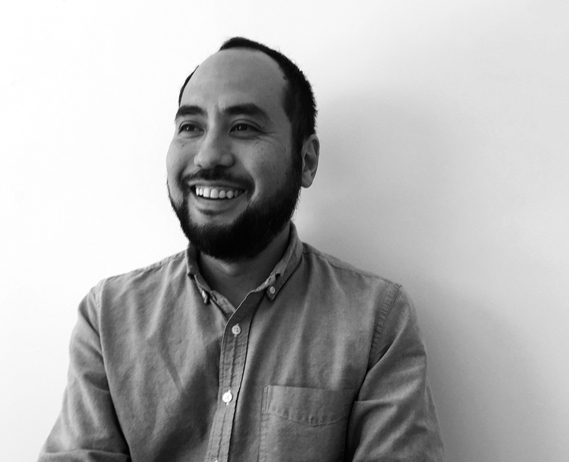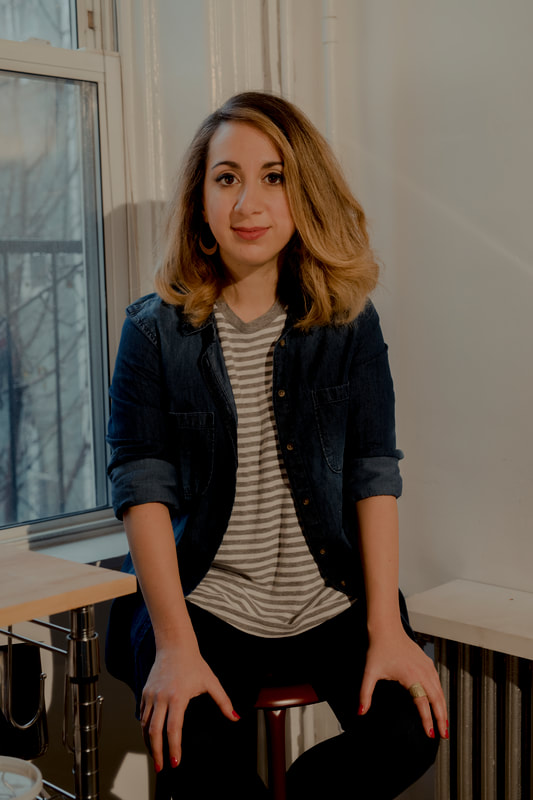Associate Professor of Literature Brandon Som Wins Pulitzer Prize in Poetry
UC San Diego alumna Mary Kouyoumdjian also named a finalist in Music
Story by:
Published Date
Story by:
Topics covered:
Share This:
Article Content
Love and respect anchor the words written by Associate Professor of Literature Brandon Som in his latest work, “Tripas: Poems,” which garnered the 2024 Pulitzer Prize in Poetry. The two dozen works in the collection reflect on the transnational paths of his family, including the intersecting languages and wisdoms they have transmitted across generations and the legacy of their labor—from assembly line to corner store.
Movement and the complicated notion of “home” also play a central role in Department of Music alumna Mary Kouyoumdjian’s multimedia work. “Paper Pianos” melds music and audio documentary with first-person stories of refugees, exploring how music serves as solace and inspiration under conditions of displacement. The piece was named a Pulitzer Prize finalist in Music this year.
At the heart of both are unsung stories that deserve to be told. “Our scholars and artists have the keen ability to recognize and elevate the narratives of those who embody the best attributes of our humanity—including resilience in the face of adversity and injustice, having the courage to create in spite of numerous obstacles and the persistence of hope during times of great uncertainty,” said Dean of the School of Arts and Humanities Cristina Della Coletta. “I congratulate Brandon Som and Mary Kouyoumdjian on their important, timely works.”
A poetic exploration of intersecting histories and family bonds

In 1968, Som’s maternal grandmother—affectionately referred to as “Nana Pastora”—began working on an assembly line at the Motorola factory in Phoenix, Arizona. Peering through microscopes, she would inspect circuitry parts in microchips that would later be assembled into phones by maquila workers in Mexico. The work was often dangerous, with exposure to toxic chemicals a pervasive peril.
His grandmother’s narrative is woven into many of his works, examining the imprint of labor on personal histories, drawing arcs between the transnational paths of his predecessors and threading different languages together to create multifaceted meaning.
For example, in the poem “Twin Plant,” he maps the connections between his grandmother’s factory in Phoenix and the “twin” factory in Mexico, the stories of workers in each forever embedded in the wiring of the components.
“I like to imagine the talk & clap back, the factory line side-eye somehow encoded on those Phoenix circuits—recorded, overdubbed, downloaded within/the photolithographic/nano-paths my nana Pat/& her coworkers inspected. Lithography originally copied sheet music. Could we then hear a choir—a gossip of warning, of healing, of organizing & resistance—inscribed on the staff lines of the circuit?”
Just as his grandmother inspected the photolithographic etchings of microchips, Som finds parallels in the patterns made on the butcher block that his father used to cut meat at his shop. “I remember the beef round/in the one-bulb light of our walk-in, the thin/windbreaker my father wore over his apron/& the shrill sound as he sharpened his knives. My father’s cuts were calligraphy too. What ink print would his butcher block make?” he writes in “Novena.”
Som traces many patterns throughout his work, linking the histories of his Chicano and Chinese American family members. The title of the work itself, “Tripas,” is about discovering connections. “I was thinking about guts and insides, the tangled parts that make up and connect my sense of self, who I am,” said Som. Also on his mind were the microchips that power the inside of our technologies, made possible by the work of his grandmother, as well as the tripas (animal intestines) that were sold at his grandfather’s store.
There are elements of memoir within the pages, too. In “Close Reading,” Som recounts conversations he had with his grandmother about the “dichos” or phrases in Spanish she grew up with, as well as the lesson received from his paternal aunt Ai Gu on how to write his Chinese grandmother’s maiden name as they spoke about her immigration experience.
Other works are shaped by a “dialogic poem-making” method, prompted by the question “cómo se dice,” or “how do you say?” Growing up in a multilingual family that spoke Chinese (Toisanese), Spanish and English, translation became an opportunity for storytelling.
“‘How do you say’ is the difficult work of writing—how to speak truth to power, how to talk about things that are challenging and traumatic, how to find the form for what has been unsaid, unnamable and perhaps unsayable,” said Som.
“I am made from the sounds, tones, expressions, perspectives, ways of seeing and being within my family’s languages. ‘Tripas,’ and poetry in general, is a way for me to trace those connections and celebrate a multilingual experience.”

This practice is employed artfully in “Code Switches.” It begins, “Cómo se dice, my circuitry, sews me—me cose—/word by word & dictates—how do you say?/She translates, wires me, rewires rosary—Rosario/was my mom’s name, she tells me. Decades pray me/an aria con cuerdas—como Ariadne.”
Beyond the act of translation, the exposure to the sounds of the words inspired Som as well. “I am made from the sounds, tones, expressions, perspectives, ways of seeing and being within my family’s languages,” he said. “‘Tripas,’ and poetry in general, is a way for me to trace those connections and celebrate a multilingual experience.”
Readers will find rich language imbued throughout the book, which was named a finalist for the 2023 National Book Award for Poetry. The news of the Pulitzer Prize Award came as a happy surprise while traveling. “Other award programs let you know that you are a finalist—that’s not so with the Pulitzer,” said Som. “I found out while traveling, literally on a plane after landing, from friends and family texting me congratulations. I am honored and deeply grateful.”
Composer inspired by refugee’s brave commitment to creative expression
Composer and documentarian Mary Kouyoumdjian is also motivated by her own heritage. As a first generation Armenian American directly impacted by war, she turns to art to amplify expression and uphold the freedom of speech in the midst of social and political conflict.
“I’m one of a handful in my family who hasn’t been displaced from the country they were born in,” explained Kouyoumdjian, who earned a bachelor’s degree in music composition from UC San Diego in 2005. Her parents and brother were displaced to the U.S. as a consequence of the Lebanese Civil War, and her grandparents and great grandparents were displaced to Syria and Lebanon during the Armenian Genocide.
“Displacement unfortunately continues to be a universally shared experience; at some point, we have to stop accepting this as the natural state of our world, and we have to ask why displacement happens and how do we prevent it from happening again,” said Kouyoumdjian. “I don’t believe that any one piece of music has the direct ability to answer those questions, but I do believe that the arts have a powerful ability to foster a community that is more willing to find the answers.”
In 2016, Kouyoumdjian received an email from contemporary music ensemble Alarm Will Sound. Refugee and pianist Milad Yousufi was seeking a piano to practice on after recently moving to New York City. Kouyoumdjian offered her upright piano and befriended Yousufi, who shared his experience of being a musician in Kabul, Afghanistan while being targeted by the Taliban.
“Milad would have been killed if he had practiced on an audible instrument, so he taught himself how to play piano by drawing the piano’s keys on a piece of paper, silently practicing on the paper, and later fleeing to the U.S. to pursue a (now an incredibly successful and vibrant) career in composition and piano performance,” explained Kouyoumdjian.
Yousufi’s unwavering commitment to his creative expression inspired “Paper Pianos,” a multimedia work that centers on the narratives of four refugees and resettlement workers. Recordings of the protagonists from interviews conducted by Kouyoumdjian (composer) and Nigel Maister (text and staging) are incorporated with intricate hand-drawn animations of visual artist Kervork Mourad to vividly depict the dramatic emotional landscape of displacement and resettlement experienced by refugees throughout the world.

“Paper Pianos” was named a finalist for a Pulitzer Prize in Music this year. “I’m incredibly grateful for the nomination, proud to be sharing it with music ensemble Alarm Will Sound and my collaborators, and excited for what this kind of recognition for a project like ‘Paper Pianos’ could mean for the music-documentary medium moving forward,” she said.
“More than anything, I feel honored to be a small part of sharing the stories of the refugees who generously shared their experiences of displacement and hope this project’s nomination allows their stories to be shared more widely and encourages further examination of the global refugee crisis.”
She credits her efforts in building community from the generosity and open collaboration she experienced as an undergraduate in UC San Diego’s Department of Music. “I had no composition experience at the time of my application, and every music department I had applied to that required an audition had rejected my application, but UC San Diego’s Music Department so wonderfully and uniquely allowed any undergraduate student to take composition classes–I wish more music departments were this welcoming!” said Kouyoumdjian.
You May Also Like
Stay in the Know
Keep up with all the latest from UC San Diego. Subscribe to the newsletter today.



